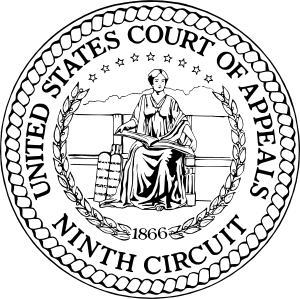 The Ninth Circuit Court of Appeals, sitting en banc, has finally issued a holding in the case of Nordyke v. King.
The Ninth Circuit Court of Appeals, sitting en banc, has finally issued a holding in the case of Nordyke v. King.
This case involved an ordinance passed by Alameda County in California. The ordinance generally prohibited the possession of firearms on county property, including fairgrounds where gun shows were traditionally held.
The Nordykes, gun show promoters, challenged this ordinance as a violation of their Second Amendment rights.
As the court noted in its opinion, the substantive constitutional framework for evaluating Second Amendment cases has changed significantly in the twelve years since this case was first filed.
Since then, the holding in District of Columbia v. Heller established that the right enumerated in the Second Amendment is an individual right and the holding in McDonald v. Chicago has incorporated that right against the states via the Due Process Clause of the Fourteenth Amendment.
But as the court also noted, the standard of review for Second Amendment cases is still evolving. Ultimately however, the court avoiding contributing to this area of evolving jurisprudence by holding that the Nordyke’s claim did not survive any possible standard of review. They based this upon the rather remarkable concession by Alameda County at oral arguments on March 19th of this year that “a gun show is an ‘event’ within the meaning of exception (f)(4)” of the challenged ordinance and therefore, gun shows may be conducted there. The county went on to concede that “buyers may physically inspect properly secured firearms.”
In accepting this concession, the court enjoined the county from “add[ing] new requirements or enforc[ing] the ordinance unequally” and noted that if “the County at any time fail[s] to apply the ordinance as it represented it at oral argument, Plaintiffs may of course bring [a new] suit.” One would expect that the court would view any such antics on the part of the county with significant displeasure.
This holding seemingly puts municipalities on notice that they cannot impose content-based bans on otherwise legal firearms events in government-owned venues that are rented to the public. However, the ruling did let stand the rather cumbersome requirements proposed by the county during oral arguments.
The county proposed that “when a ‘firearm is not in the actual possession of the authorized participant,’ the firearm must be ‘secured to prevent unauthorized use’ [and that] ‘a sturdy cable attaching the firearm to a fixture, such as a table, would'” satisfy this requirement.
As Judge Ikuta and Judge Callahan noted in their lukewarm concurrence, the court’s use of a “rule of thumb” test rather than addressing the county’s conceded requirements under some specifically articulated standard of review was a bit of a “rough-justice” approach. It not only allowed them to reach a holding without addressing the tougher issue of standard of review but potentially allowed the county to impose requirements that are stricter than should be allowed.
The majority reaches this conclusion notwithstanding the lack of any basis in the record to ascertain how the requirement that firearms be tethered to a table, actually burdens gun shows, or the nature of the fit between this burden and the government’s alleged purpose to “promote the public health and safety by contributing to the reduction of gunshot fatalities and injuries in the County.”
Ultimately, this is a victory for gun rights. However, I note with some sadness that the county effectively denied the right to hold gun shows on their property for 12 years, cost the plaintiffs tens of thousands of dollars in legal fees, and “discovered” at the end that they had an exception all along.
The entire ruling may be read below.

Pingback: Ninth Circuit issues holding in Nordyke v. King | All Nine Yards
Pingback: Court Finds Corps of Engineers Ban on Guns Unconstitutional | Give Me Liberty
Pingback: Court Finds Corps of Engineers Ban on Guns Unconstitutional